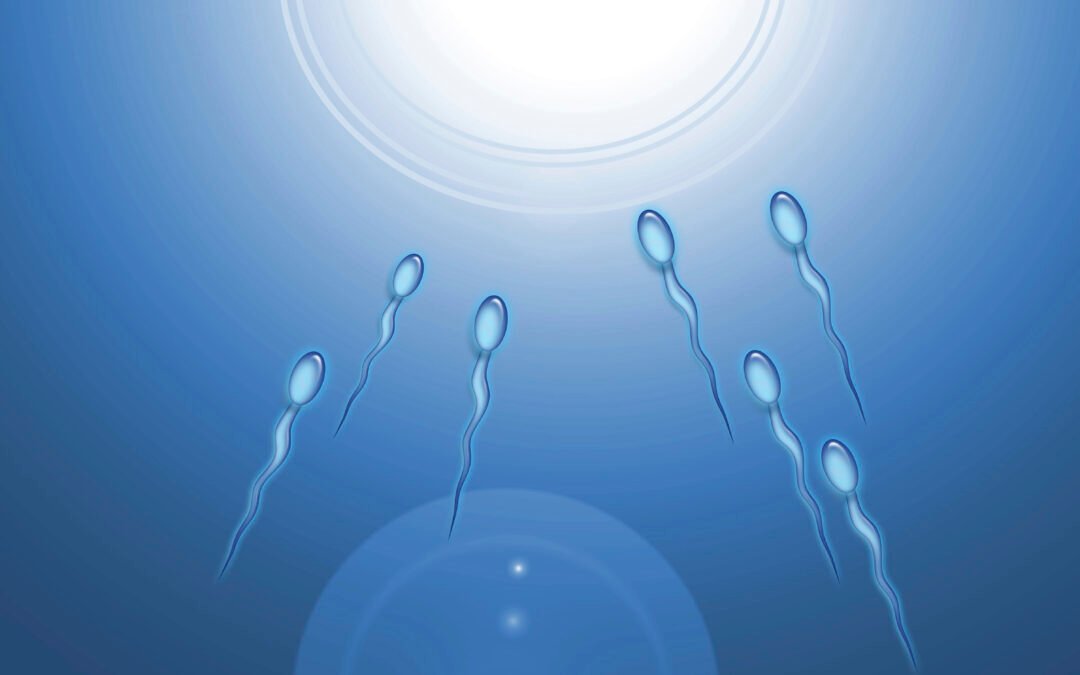What is Intrauterine Insemination (IUI)?
Intrauterine insemination (IUI) is a common fertility treatment that is employed to assist couples struggling to conceive. It involves placing sperm directly into a woman’s uterus during ovulation, thus increasing the chances of fertilization. IUI is less invasive and often less expensive than other fertility treatments, such as in IVF. The procedure is straightforward, and many people find it to be a suitable first-line treatment option for certain types of infertility.
History of IUI
The concept of IUI began to take shape in the 18th century, but it wasn’t until the 20th century that techniques became refined enough to offer it as a viable option for couples facing fertility challenges. Through the years, advancements in sperm washing techniques, insemination protocols, and overall understanding of human reproduction have enhanced the effectiveness and safety of IUI.
IUI Step by Step
The IUI process typically involves several steps:
- Initial Consultation: The fertility specialist will conduct a thorough evaluation of the couple, including medical history reviews, physical examinations, and diagnostic tests (e.g., hormone level tests, semen analysis, and imaging studies.
- Ovarian Stimulation: If needed, the woman may be prescribed fertility medications to stimulate the ovaries to produce multiple eggs. Monitoring through blood tests and ultrasounds will occur to gauge follicular development.
- Ovulation Triggering: When the follicles are mature, a trigger shot of human chorionic gonadotropin (hCG) is administered to induce ovulation.
- Semen Collection and Preparation: A semen sample is collected from the male partner (or a sperm donor). The sample is then analyzed and processed using a method called sperm washing to separate motile sperm from seminal fluid and non-motile sperm.
- Insemination: The prepared sperm is inserted into the uterus using a thin catheter during the woman’s ovulation window. This procedure is often quick and relatively painless.
- Post-Procedure Care: After the procedure, patients are usually advised to rest for a short period. Many women go back to normal activities almost immediately.
- Pregnancy Test: About two weeks after the insemination, a blood test is taken to check for pregnancy.
Why is IUI performed?
IUI is utilized for various reasons, including:
- Unexplained Infertility: When no specific cause for infertility can be identified.
- Mild Male Factor Infertility: Cases where the sperm count or motility is slightly below normal.
- Cervical Factor Infertility: When the cervical mucus is hostile or thick, preventing sperm from entering the uterus.
- Same-Sex Couples or Single Women: Individuals who wish to conceive using donor sperm.
Who Can Benefit from IUI?
Several groups of people may find IUI beneficial:
- Women with irregular menstrual cycles who might have difficulty predicting ovulation.
- Couples where the male partner has a lower sperm count or mobility issues.
- Lesbian couples or single women who would like to become pregnant using donor sperm.
- Couples who have been unable to conceive after trying naturally for a defined period of time.
Is IUI Offered Everywhere in the World?
IUI is a widely practiced procedure, particularly in developed countries, but accessibility can vary based on region, healthcare systems, and local regulations regarding fertility treatments. In many urban areas, fertility clinics offer IUI as part of their services. However, in some parts of the world, especially in remote or less developed regions, access to IUI may be limited.
The availability also depends on various factors including economic conditions, societal norms regarding fertility treatments, and healthcare infrastructure. Moreover, in some countries, legal and ethical considerations may impact the use of donor sperm or the practice of IUI itself.
Are There Any Risks Associated with IUI?
IUI is generally a safe procedure, but like any medical treatment, it comes with potential risks:
- Infection: Since the uterus is being accessed, there is a small risk of introducing an infection.
- Multiple Pregnancies: If ovarian stimulation medications are used, there is a risk of developing multiple pregnancies (twins, triplets, etc.), which carry higher health risks.
- Bleeding or Discomfort: Some women may experience light bleeding or cramping after the procedure.
- Ectopic Pregnancy: Although rare, there is a risk of ectopic pregnancy, which occurs when a fertilized egg implants outside the uterus.
What Are the Success Rates of IUI?
The success rates of IUI vary based on several factors, such as:
- Age of the Woman: Women under 35 typically have higher success rates compared to older women.
- The Quality of the Sperm: Higher motility and counts usually lead to improved outcomes.
- Cause of Infertility: Certain infertility diagnoses yield better chances of success with IUI than others.
In general, success rates can range from 5% to 20% per cycle, with cumulative success increasing when multiple cycles are undertaken. Couples are often advised to attempt IUI for 3-6 cycles before moving on to more invasive procedures like IVF.
IUI vs IVF – What Are the Differences?
IUI and IVF are both fertility treatments, but they differ significantly in methodology and approach:
Procedure:
IUI: Involves placing washed sperm directly into the uterus during ovulation.
IVF: Involves retrieving eggs from a woman’s ovaries, fertilizing them in a lab with sperm, and transferring the resulting embryos back into the uterus.
Complexity:
IUI: Less invasive, quick, and often performed in a clinic or doctor’s office.
IVF: More complex, requires hormonal injections, multiple monitoring appointments, and typically a surgical procedure to retrieve eggs.
Indications:
IUI: Suitable for unexplained infertility, mild male factor infertility, cervical issues, and same-sex couples.
IVF: Suggested for severe male factor infertility, blocked fallopian tubes, endometriosis, or when other treatments have failed.
Costs:
IUI: Generally less expensive than IVF.
IVF: More costly due to the extensive procedures involved.
Outcome Expectations:
IUI: Lower success rates per cycle compared to IVF.
IVF: Often higher chances of pregnancy, especially for those with specific fertility issues.
If you would like more information about IUI or IVF contact info@theifc.com
IVF clinics, best IVF clinic, IVF in England, best IVF center, ivf center, what is icsi, IVF, egg donation, sperm donation, artificial insemination, IVF treatment, IVF procedure, IVF clinics, fertility clinic, fertility, infertility treatment, assisted reproductive technology, egg retrieval, embryo transfer, IVF success rates, fertility specialist, IVF cost, male infertility, female infertility, IVF process, preimplantation genetic testing, frozen embryo transfer, IVF alternatives, borrowed eggs, embryologists, group fertility, gynecological care, diagnostic testing, egg donation, ivf egg donation, medicinal stimulation, assisted reproduction, genetic diagnosis, preimplantation genetic diagnosis, ovarian stimulation
IVF clinics, best IVF clinic, IVF in England, best IVF center, ivf center, what is icsi, IVF, egg donation, sperm donation, artificial insemination, IVF treatment, IVF procedure, IVF clinics, fertility clinic, fertility, infertility treatment, assisted reproductive technology, egg retrieval, embryo transfer, IVF success rates, fertility specialist, IVF cost, male infertility, female infertility, IVF process, preimplantation genetic testing, frozen embryo transfer, IVF alternatives, borrowed eggs, embryologists, group fertility, gynecological care, diagnostic testing, egg donation, ivf egg donation, medicinal stimulation, assisted reproduction, genetic diagnosis, preimplantation genetic diagnosis, ovarian stimulation
IVF clinics, best IVF clinic, surrogacy in Argentina, IVF in England, best IVF center, ivf center, what is icsi, IVF, egg donation, sperm donation, artificial insemination, IVF treatment, IVF procedure, IVF clinics, fertility clinic, fertility, infertility treatment, assisted reproductive technology, egg retrieval, embryo transfer, IVF success rates, fertility specialist, IVF cost, male infertility, female infertility, IVF process, preimplantation genetic testing, frozen embryo transfer, IVF alternatives, borrowed eggs, embryologists, group fertility, gynecological care, diagnostic testing, egg donation, ivf egg donation, medicinal stimulation, assisted reproduction, genetic diagnosis, preimplantation genetic diagnosis, ovarian stimulation
IVF clinics, best IVF clinic, IVF in England, best IVF center, ivf center, what is icsi, IVF, egg donation, sperm donation, artificial insemination, IVF treatment, IVF procedure, IVF clinics, fertility clinic, fertility, infertility treatment, assisted reproductive technology, egg retrieval,
embryo transfer, IVF success rates, fertility specialist, IVF cost, male
infertility, female infertility, IVF process, preimplantation genetic testing, frozen embryo transfer, IVF alternatives, borrowed eggs, embryologists, group fertility, gynecological care, diagnostic testing, egg donation, ivf egg donation, medicinal stimulation, assisted reproduction, genetic diagnosis, preimplantation genetic diagnosis, ovarian stimulation






